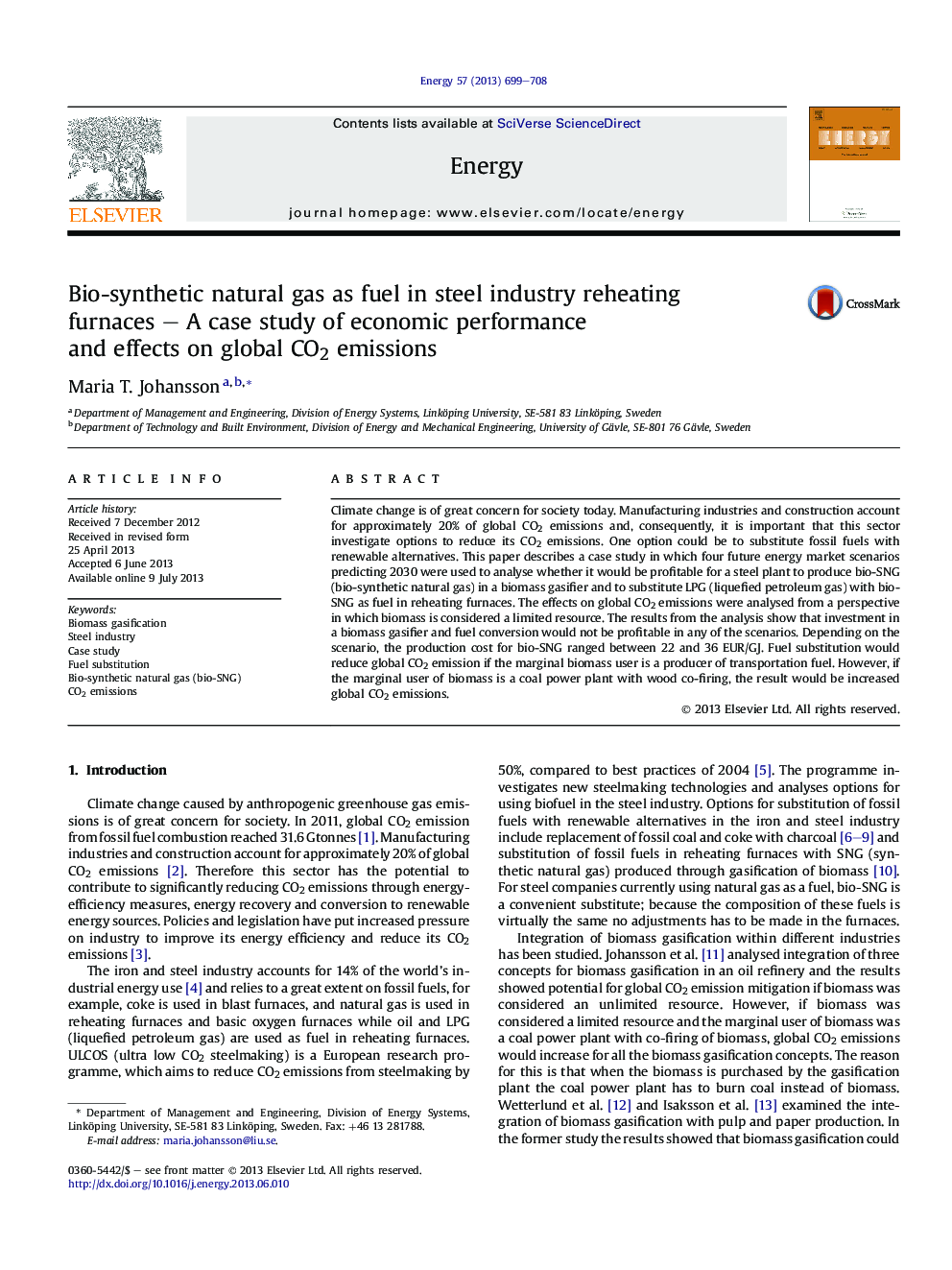| کد مقاله | کد نشریه | سال انتشار | مقاله انگلیسی | نسخه تمام متن |
|---|---|---|---|---|
| 1733113 | 1521489 | 2013 | 10 صفحه PDF | دانلود رایگان |

• Scenarios analysis shows that fuel substitution is not profitable.
• Policy support for production of bio-SNG could make a fuel substitution profitable.
• The impact on global CO2 emissions depends on the marginal biomass user.
• The impact on global CO2 emissions depends on the marginal electricity producer.
Climate change is of great concern for society today. Manufacturing industries and construction account for approximately 20% of global CO2 emissions and, consequently, it is important that this sector investigate options to reduce its CO2 emissions. One option could be to substitute fossil fuels with renewable alternatives. This paper describes a case study in which four future energy market scenarios predicting 2030 were used to analyse whether it would be profitable for a steel plant to produce bio-SNG (bio-synthetic natural gas) in a biomass gasifier and to substitute LPG (liquefied petroleum gas) with bio-SNG as fuel in reheating furnaces. The effects on global CO2 emissions were analysed from a perspective in which biomass is considered a limited resource. The results from the analysis show that investment in a biomass gasifier and fuel conversion would not be profitable in any of the scenarios. Depending on the scenario, the production cost for bio-SNG ranged between 22 and 36 EUR/GJ. Fuel substitution would reduce global CO2 emission if the marginal biomass user is a producer of transportation fuel. However, if the marginal user of biomass is a coal power plant with wood co-firing, the result would be increased global CO2 emissions.
Journal: Energy - Volume 57, 1 August 2013, Pages 699–708